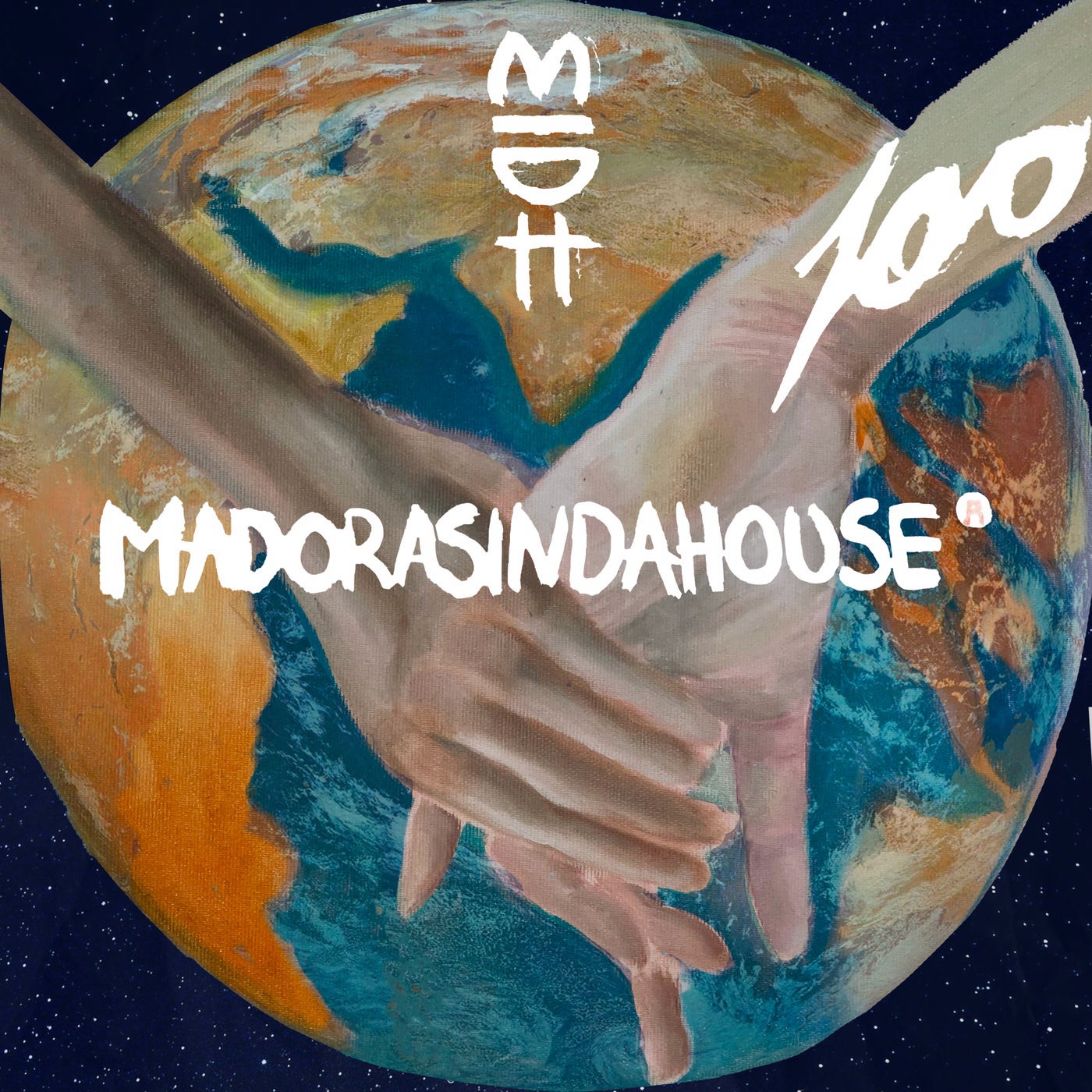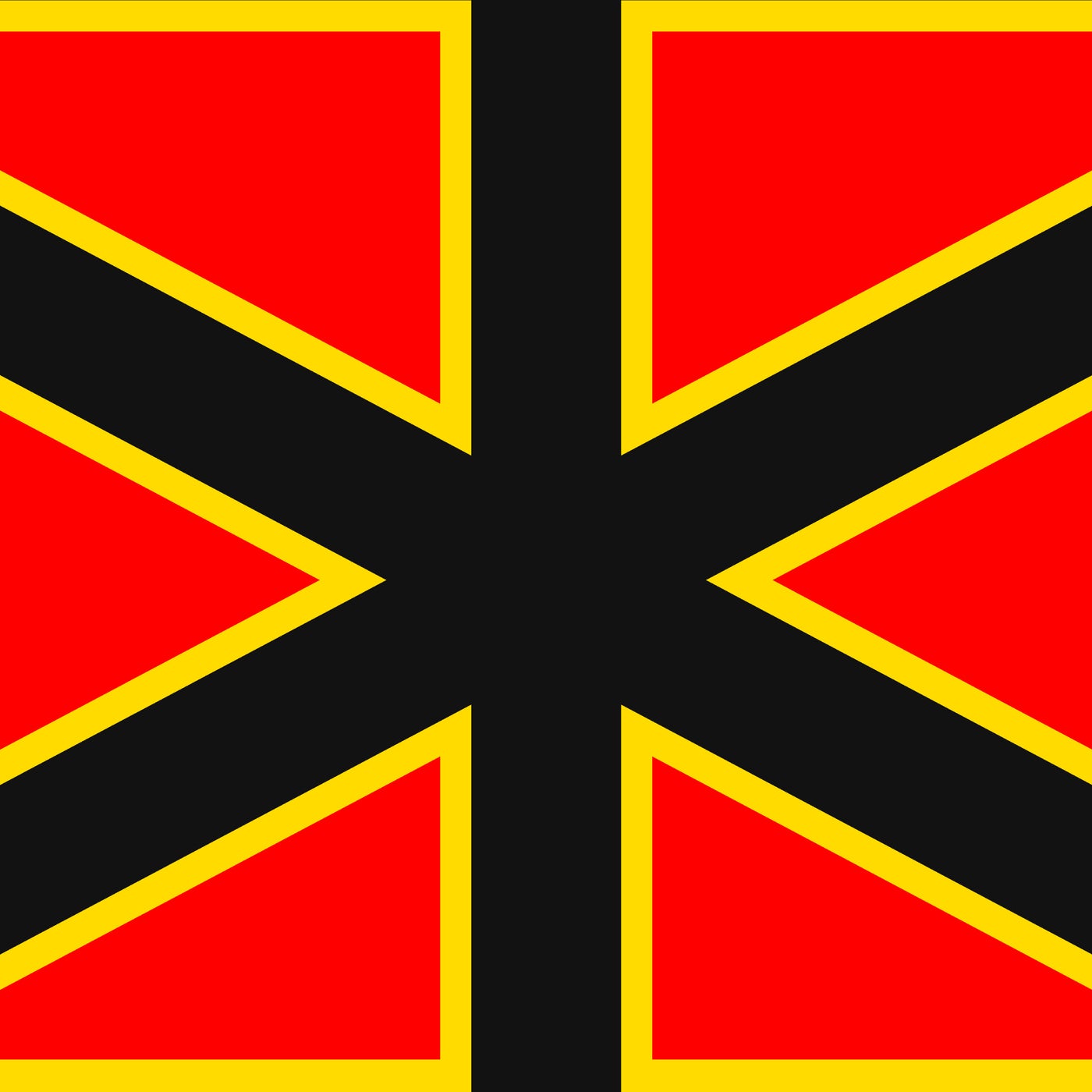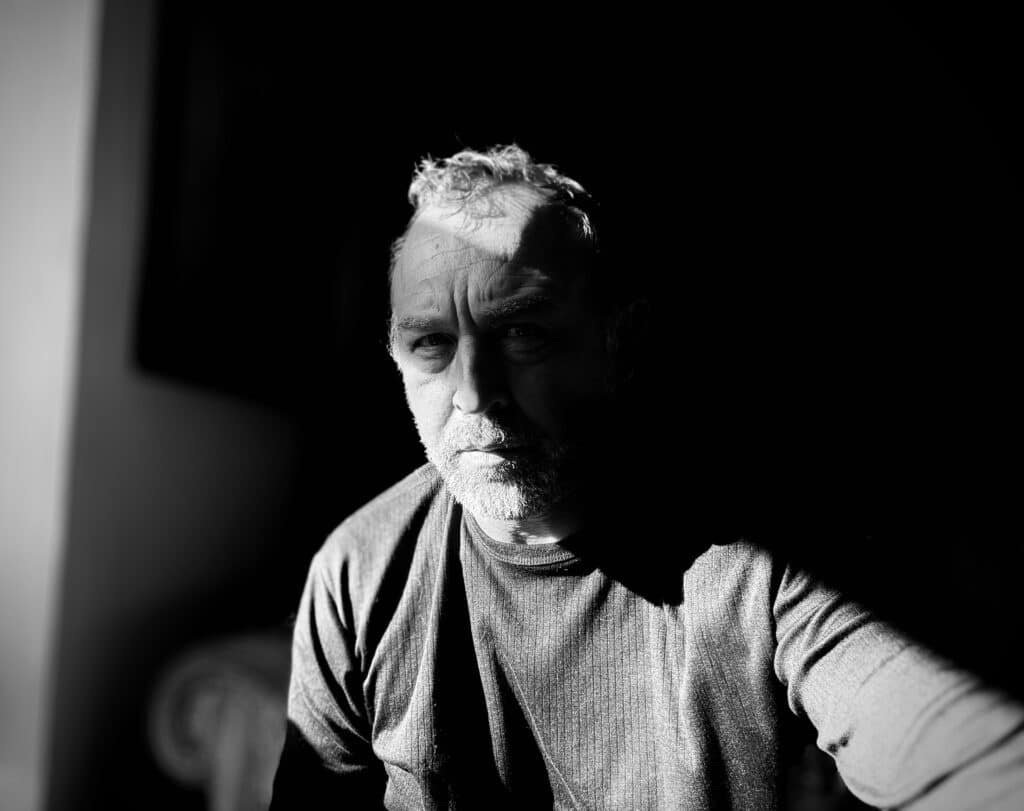It’s also their Sub Pop debut and a reunion with producer Nick Millhiser, a pairing that keeps the trio’s pulse steady even as the band hints at risk. What’s here is very good – sometimes gorgeous – but often feels like exquisitely rendered déjà vu, a mirror held up to their previous three albums when I kept hoping for the bold pop turn their songs have always suggested.
The opening stretch signals breadth. “Can’t Face Another One” opens the album with the strum of guitar and spare notes from a harmonica and flute-like synthesizer. Devaney’s voice seems more fragile here than on previous efforts. “Silhouette” takes a widescreen turn – the kind of patient, horizon-line pacing I associate with The National – and “Under the Water” is tender and luminous. Across these ten tracks the band remains faithful to their 80s circuitry – OMD’s melodicism, New Order’s cold-to-warm throb, Brian Eno’s graceful experimentation – yet the expansion is incremental, not transformational.
Sequencing does a lot of the storytelling. The late-album one-two of “In Your Head” into closer “Nights of Weight” binds frenzy to release; the penultimate track’s chant – “Calling out, caving in” – crashes into a softer resolve on the aching “Nights of Weight”, with a melody that faintly echos the former and lets air back into the room. Both songs are standouts, and the set would feel slimmer without them.
Lyrically, Devaney remains a compelling chronicler of uncertainty. “I’m Not Ready for the Change”, the record’s strongest single, is as plainspoken as its title, a line he repeats – “I’m not ready for the change” – until resignation turns devotional. The meandering “Can You Reach Me” captures the painfulness of confronting a past that continues to resurface as Devaney sings, “Catatonic on the 7 train / stuck living in symphonic pain / I don’t know / how to make it stop."
Part of the band’s enduring appeal is tactile: the way their machines feel human. Devaney and Aidan Noell’s synths, with dotted delays and programmed changes are shaped to the contour of each song rather than the other way around. That craft keeps these tracks warm to the touch, even when the palette is icy.
And yet – I still wanted the pop record inside this one. Since Introduction, Presence, Nation of Language have flashed an instinct for immediacy: the earworm lift of “September Again”, the highway-blur romance of “The Motorist”, even the hypnotic guitar drive of “Tournament”. On A Way Forward, “The Grey Commute” felt like a bridge to something sleeker; Strange Disciple gave us their purest love song in “Weak in Your Light”. Dance Called Memory has the bones – catchy choruses, unexpected bridges, a clean arc – but too often sands down its edges at the very moment you expect it to punch with a tight pop structure this band clearly knows how to write.
To be fair, the band knew their sound from record one – Devaney once described being drawn to that pre-birth atmosphere of classic synthpop, using old building blocks to translate the present – and they’ve built a career on executing that idea with remarkable consistency. The consistency is still the thrill. But with a catalogue this strong, I find myself greedy: give me the maximalist swing, the unabashed banger, the single that dares to shear off some tasteful restraint in under three minutes. What I miss is the sense of stakes in the production – the moment when the synths bloom wider than the template, when the drums hit with pop drama rather than period-correct poise.
So: Dance Called Memory is a very good Nation of Language album – perhaps their most tonally varied since the debut – and for many fans that will be more than enough. For me, it’s an almost, the near-perfect sketch of a band that has the songs (and the heart) to cross the pop threshold if they choose. If this is the preface to that move, the next chapter could be the one where they finally let the mirror shatter and step through.

 1 month ago
19
1 month ago
19


















 English (US) ·
English (US) ·